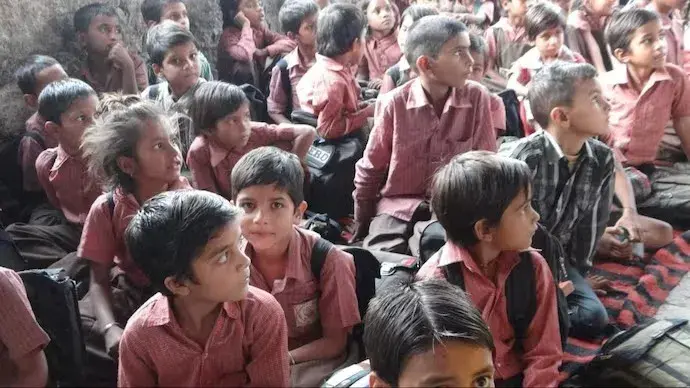ArdorComm Media Bureau
November 5, 2024
In a decisive move to reinforce the safety and security of students, the Directorate of Education (DoE) in Delhi has issued a comprehensive directive to all schools in the capital. This directive mandates the strict implementation of guidelines formulated by the National Commission for Protection of Child Rights (NCPCR), aiming to provide a safe and secure learning environment for all students across government, government-aided, and private institutions.
The NCPCR guidelines outline critical safety measures and emphasize the accountability of school management to prevent and address risks that could jeopardize the safety of students. In its recent circular, the DoE specifically directed heads of all schools to rigorously follow a checklist for safety inspections. This checklist encompasses a range of safety protocols that cover not only the physical infrastructure of schools but also address child protection measures, emergency preparedness, and comprehensive security policies.
A senior DoE official highlighted that this initiative is part of a larger, national effort to bring school safety practices in line with the ‘Guidelines on School Safety and Security 2021,’ which was issued by the Ministry of Education in response to a Supreme Court mandate and in alignment with the goals of the National Education Policy (NEP) 2020. The NEP places an unprecedented emphasis on child safety and wellbeing, viewing a secure school environment as essential to the overall mission of educational reform in India.
The DoE’s circular further underscores that school heads are to ensure the readiness of their institutions as per the NCPCR’s guidelines. This includes verifying the school infrastructure, conducting regular fire and safety drills, and implementing robust monitoring systems. Additionally, school authorities are encouraged to enhance the awareness and preparedness of both students and staff regarding safety protocols, which involves training teachers and non-teaching staff in emergency response and first aid.
Furthermore, to strengthen hostel safety, all school heads have been instructed to comply with the guidelines provided by the National Disaster Management Authority (NDMA) for hostels within educational institutions. These NDMA guidelines cover a spectrum of risk management practices, from structural safety checks to provisions for timely evacuations during emergencies, thereby ensuring that students residing in school hostels are equally protected.
Creating a Culture of Safety and Accountability
This initiative reflects a paradigm shift toward embedding a culture of accountability in the management of student welfare. By mandating regular safety audits, the DoE is aiming to institutionalize child safety as a core responsibility within school administration. School principals, teachers, and staff members are now accountable for actively monitoring school premises and reporting any safety hazards.
Parents and guardians are also urged to play a proactive role by familiarizing themselves with the safety protocols implemented in schools and by communicating openly with school authorities about any concerns regarding their child’s safety. The DoE emphasizes that fostering a secure environment for students is a shared responsibility, and cooperation between school management and families is pivotal for successful implementation.
Impact of NEP 2020 and Future Prospects
The emphasis on student safety aligns with the broader educational reforms proposed under NEP 2020, which advocates for holistic student welfare, including mental and physical safety. The NEP’s comprehensive approach highlights the necessity of safety in achieving quality education outcomes, suggesting that a secure environment enhances students’ capacity to focus and excel academically.
The DoE has reiterated its commitment to maintaining a rigorous review and monitoring process to ensure that all schools in Delhi remain compliant with these enhanced safety guidelines. Schools that fail to adhere to these standards may face stringent consequences, including administrative penalties, suspension of school activities, or withdrawal of affiliation in severe cases.
Through these initiatives, the Delhi DoE and NCPCR aim to transform schools into spaces where students not only learn but also feel protected and secure. As the guidelines take effect, stakeholders in Delhi’s education ecosystem – from school leaders to teachers and parents – are collectively working toward establishing a resilient foundation for student safety and setting a benchmark for other states to follow. This enhanced focus on school safety is expected to usher in a new era of child welfare that prioritizes preventive measures and proactive vigilance, ultimately fostering a more supportive and trustworthy educational environment across the city.
Source : India Today
Photo Credit : India Today


